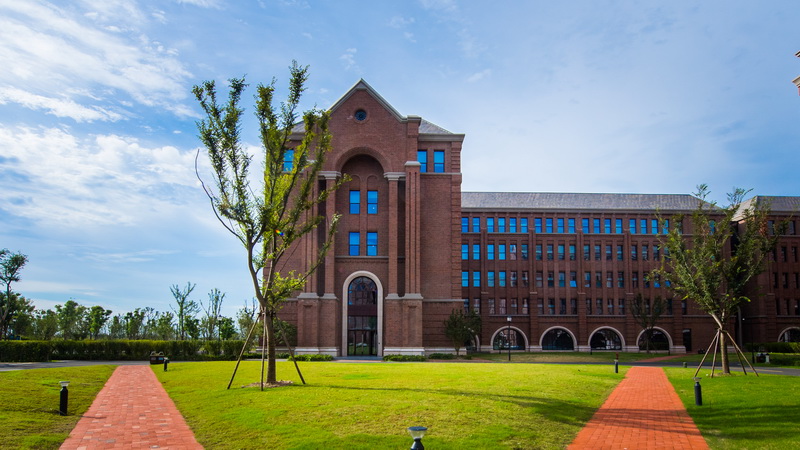Following the principle of seeing the big picture in small things, we explore iZJU scholars' study room, to disclose the hidden stories of the books and the i-scholars.
Study rooms have a special meaning in the spiritual world, and each has their unique mark from the scholars, outlining their inner world. On World Book and Copyright Day, the library invited Professor BEN Shenglin, Dean of Zhejiang University International Business School, to share his own collection of books in his study room, and life experience of working and academic exploration from the perspective of reading.
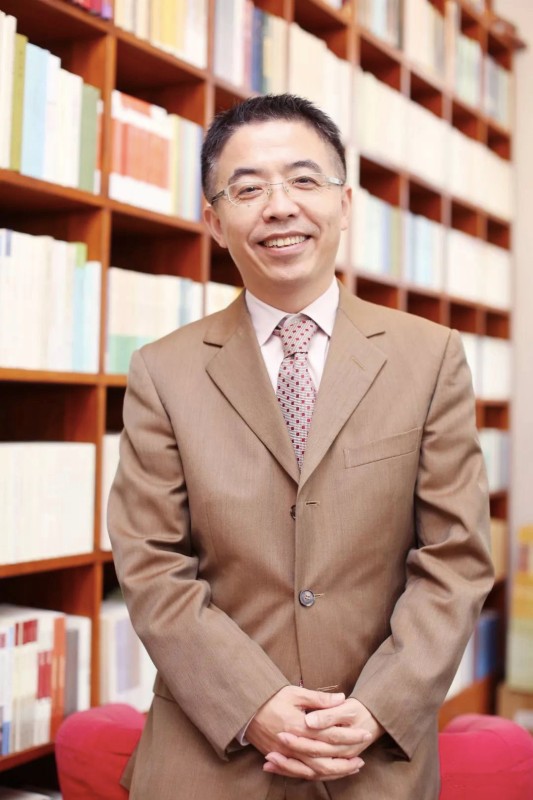
Scholar introduction
BEN Shenglin, professor and doctoral supervisor of Zhejiang University, the founding dean of the Zhejiang University International Business School (ZIBS) and the founding dean of the Academy of Financial Science and Technology (AIF). He was born in 1966, Taixing, Jiangsu Province, has a bachelor's degree in engineering from Tsinghua University (1987), a master's degree in business administration from Renmin University of China (1990), and a PhD in Economics from Purdue University (1994).
His main research interests are fintech, entrepreneurial finance, international finance, globalization strategy, digital transformation and eco-operation.
01 My Harbour
It is often said that family is the harbor of life. Like me, as I am usually busy at work, often involved in all kinds of social activities, every now and then I want to take myself away from these external constraints, and the study room is a good space for me to be more self-contained. In the past, it seems that I never thought about what kind of name I should give to my study room, but now I would like to give it the name of "Harbour". It represents the harbor of the soul, the culture, and my thinking, which allows people to calm down and read books.
My reading space consists of the study room and the office. I will read paper books or e-books in my study or office. For me, sitting in my own study and reading leisurely is most enjoyable.
When it comes to my collecting and reading preferences, I don't have a wide range of interests. Like being picky about what I eat, I am rather picky about what I read. I love to read what interests me, probably because of my age. Right now, I prefer to collect historical and political books, especially on international politics and world history, from which I can see the development path of things, technology and industry. For example, The Biography of Steve Jobs, which reveals the history of technological development behind Internet finance, enables me to gain more experience and inspiration. Steve Jobs launched the iPhone, the popularity of smart phones, the emergence of Alipay... It is because of the appearance of these technologies, people do not need to go to the bank counter to transfer money, which has completely changed the way of life.
Some of my books have been recommended by friends and some have been given by friends. For example, recently, Ma Bowei, the former director of the Provincial Department of Justice, gave his book to me at a meeting. We have known each other for many years but have not been able to communicate in depth. By reading this book which recorded his growth, I can learn more about his thinking, his concepts, so that I can really get to know him.
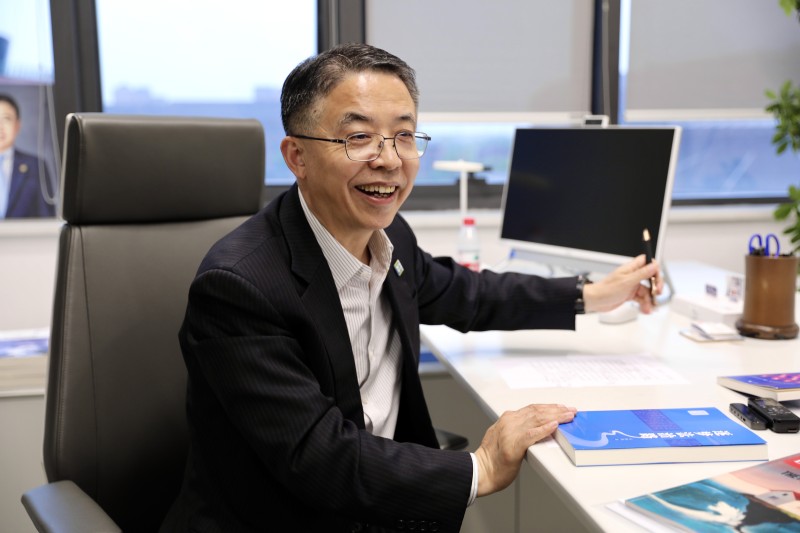
▲ The Book given by one of his friends
02 Transitional Changes in My Life
From “Chemistry” to “Automation”
When I was a child in the village, I didn't have many books to read, and if we had one book, we all took turns to read it. The popular novels we read at that time will surprise you, revolutionary novels. When I was in junior and senior high school, we would sneak down and read The Steel Meets Fire and novels by JIN Yong when the teacher was lecturing up there.
When I was young, I wanted to be a chemist. As there was a saying then, if you're good at math, science and chemistry, you're not afraid of anything. At that time, I was good at memorizing all kinds of formulas, and getting high scores in chemistry exams. So, my chemistry teacher appreciated me very much, which is a kind of positive feedback for me to dream of being a chemist. For my undergraduate study, I was accidentally admitted to the Department of Automation not chemistry, this once made me very sad. But looking back now, with the lack of practical knowledge, I wondered if I was really suited for chemistry.
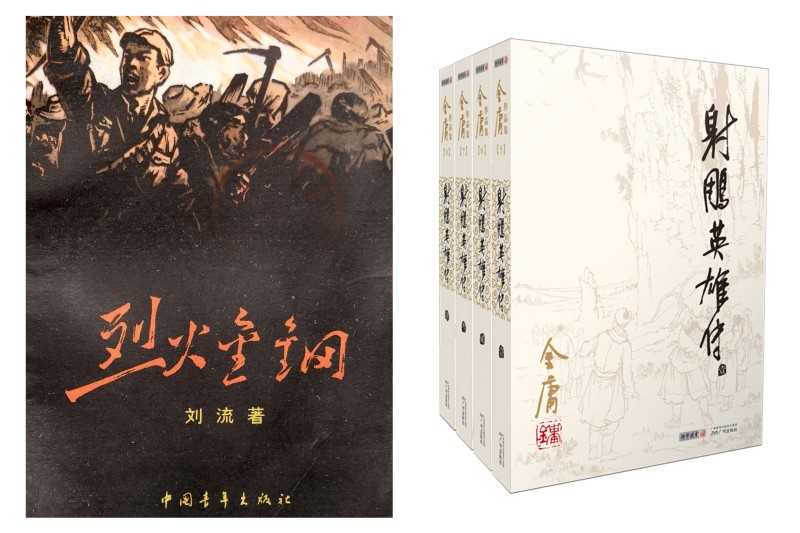
From "Automation" to "Economics"
From Undergraduate to PhD, I went from majoring in automation at Tsinghua University to majoring in economics at Purdue University in the U.S. Facing with transitional changes in both majors and languages, I can say that it is difficult to balance the academic and general reading. During my PhD, I once struggled because of the lack of basic economic knowledge. But I found it easier that many English terms in Economics is just like that in Math, which I read a lot from original English books during my undergraduate studies. This makes my PhD study easier.
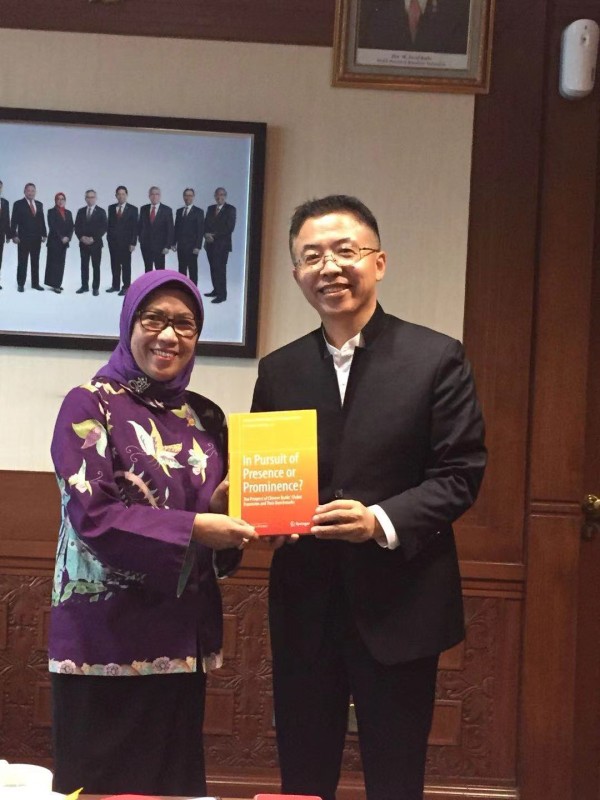
I wasn't really interested in my undergraduate major, but I kind of like languages, English, because it allows you to see things in a different logic and perspective. This keeps me motivated to read a lot of books in English. I took it as a kind of general reading, and I recognized a lot of terms and English vocabulary in these English books, which provided a solid foundation for both studying in the US and studying economics during my PhD. It’s a kind of balance between general and academic reading.
From "University" to "Bank"
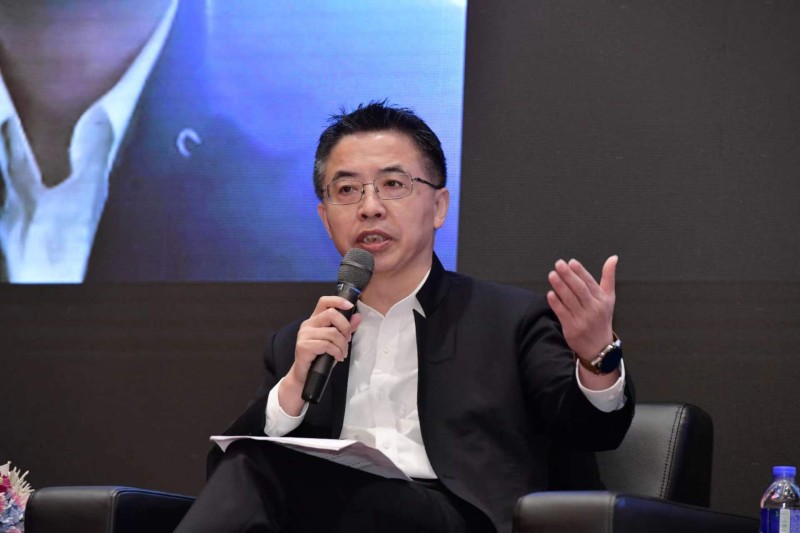
When I was studying in the U.S., PhDs in economics were very theoretical, and the assumptions made in their research were far from the problems that needed to be solved in China. I knew that only by putting what I had learnt into practice could I really contribute to China's financial industry and economy. When I left the U.S., I gave my theoretical books to my friends because the freight charge was too expensive (I was still a poor student at that time), and I thought I might not be able to use them in the short run.
Later, when I worked in finance, most books I read were applied books. Because of the nature of my work, I was exposed to a lot of industries, and I read books for the backdrop of the industry, so I needed to cover a wider range of topics. During that time, I would also read many industry-related magazines, such as The Economist, a habit that I maintain until now.
Back to "University"
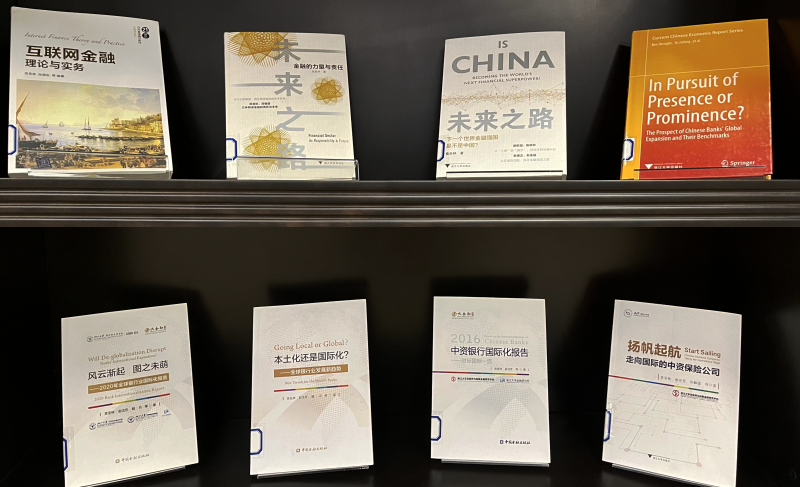
Today is 16th April, exactly six years since the first time that Professor HE Lianzhen took me to walk around the International Campus of Zhejiang University and the tenth year since I came to Zhejiang University. This is a wonderful coincidence and a kind of fate. My original plan was to work in the financial industry for 12 years and return to University before I was 40, although for some reason it was a few years later than I planned.
Working in university has brought me into learning from many big names, such as Professor LIN Yifu of Peking University, as well as many academicians and leaders in our university, and I have been able to gain a lot of energy and inspiration from them and their works.
I hope that everyone at the International Campus will read books from different perspectives. You may not necessarily agree with them, but it is conducive to the development of our critical thinking. In a globalized, multi-civilization and multi-lingual environment, students from International Campus should be more rational, elegant, equal, calm and comfortable in communicating with people from different civilizations. For example, even students of science and technology can grasp a little bit of finance and business management, which is good for personal development, for whole-person education, and for Zhejiang University's goal of cultivating composite and global talents.
03 Recommended Books
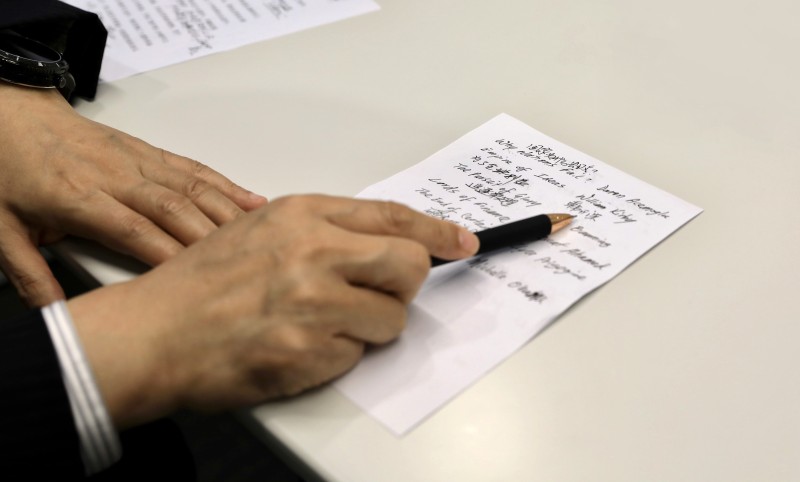
Professor BEN Shenglin's manuscript
Favorite TOP1
Why Nations Fail Daron Acemoglu, Profile Books, 2013
"I read this book shortly after it was first published. It has a very unique perspective and was able to think about things from perspective that I hadn't thought of. As a PhD in economics, I don't always agree with his points, but it still inspired me a lot. After reading the book, you will realize that economics is more useful than what you think (laughs)."
Empires of Ideas, William C. Kirby, Harvard University Press, 2022
The Pursuit of Glory, Tim Blanning, Penguin, 2008
Lords of Finance, Liaquat Ahamed, William Heinemann Ltd, 2009
The End of Certainty, Ilya Prigogine, Free Press, 1997
Becoming, Michelle Obama, Crown, 2018
《为了全球利益 : 韩升洙演讲集》,韩升洙,清华大学出版社,2016
Conclusion
It was a pleasant interview. Professor BEN's selflessness and humility made people feel warmful and comfortable. His wonderful life experience, educational pursuits, and academic achievements are even more beneficial.
At the end of the interview, Professor BEN Shenglin said with great humor, that because we are a family, he is from a science and engineering background, he just likes to say some real things. Undoubtedly, this is the most impressive trait of Professor BEN - sincerity.
Planner: XU Shunan, ZHU Linyi;
Article: LIN Suting;
Photography: QIN Difan;
Translation: LIU Weifeng, Yin Chair;
Editing: ZHANG Xinyue, LIU Shuaiyin;
Editing in charge: ZHANG Yi
Reviewer: WU Fengbin


